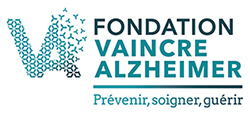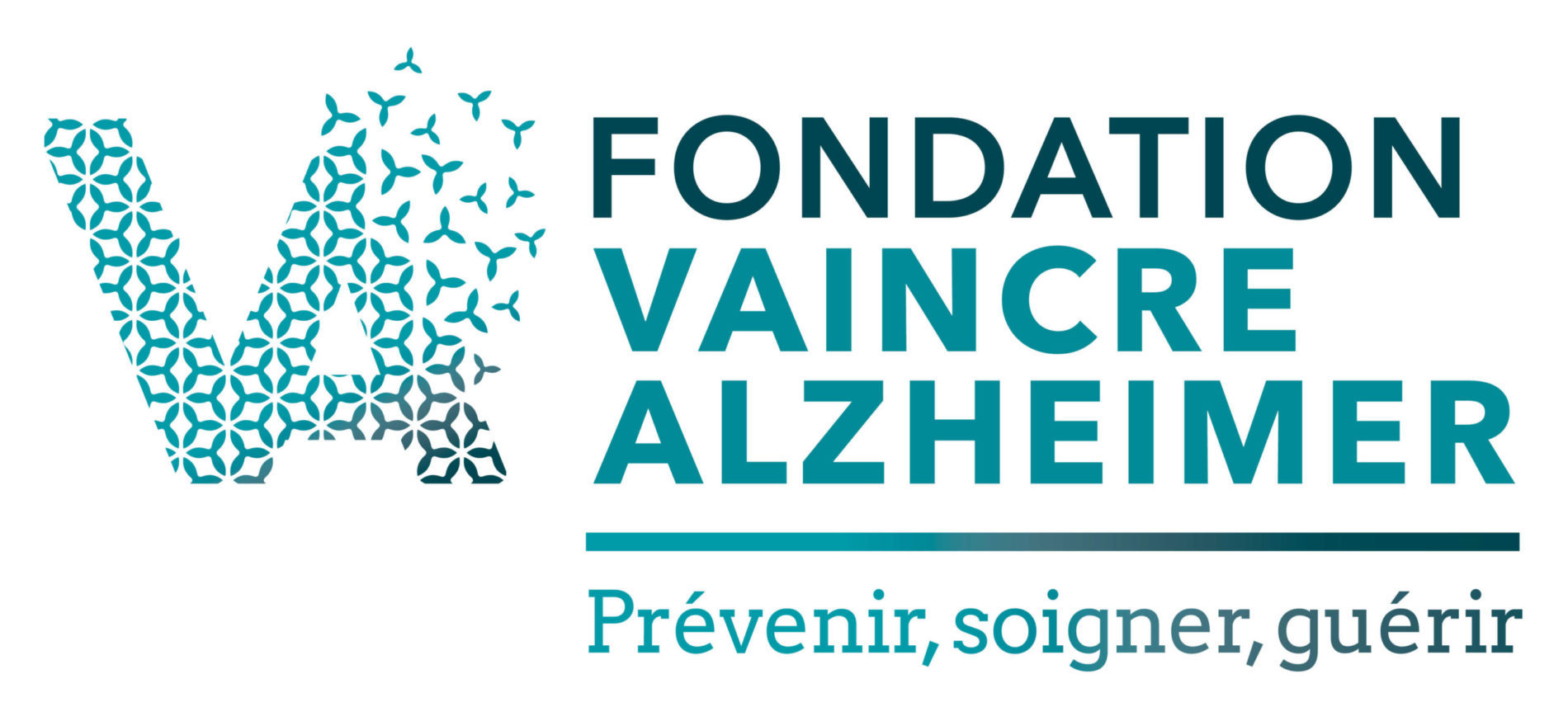PROJECTS SUPPORTED FOR 2019
You can read the descriptions and results of each research project on Alzheimer’s disease funded by Fondation Vaincre Alzheimer.
Dr. Emanuel NIVET
Aix Marseille Université, Institut de NeuroPhysiopathologie
Human APOE4-Specific Neuroinflammation as a Driver Event in Alzheimer’s Disease
PROJECT SUMMARY
Our objective is to dissect the molecular dysfunctions in human glial cells that associate with the isoform E4 of the Apolipoprotein E (APOE), which provides the highest genetic risk to Alzheimer’s disease (AD). We hypothesize that APOE4 contributes to neuroinflammatory events underlying AD pathogenesis. Using APOE-targeted genome editing in human induced pluripotent stem cells (hiPSCs) we aim at: i) analyzing the impact of different APOE genotypes on the inflammatory response in astrocytes and microglia; ii) identifying the mechanisms supporting APOE4-specific neuroinflammatory changes and; iii) investigating ways to modulate APOE4-specific neuroinflammation and the consequences on neurons.
RELEVANCE OF PROPOSED RESEARCH TO ALZHEIMER’S DISEASE
We aim at gaining a comprehensive understanding of cell dysfunctions that could precede the toxic accumulation of the amyloid β peptide (Aβ). Neuroinflammatory changes are among the earliest signs of AD, even before Aβ deposits, suggesting they could be driving forces of the disease. The premise of this project is that glial cells are central in these effects and that APOE is a guardian of glial homeostasis. Identifying APOE4 as a molecular driver leading to overt inflammation and investigating the mechanisms at stake would be relevant to AD. Thus, tuning down the inflammatory response from glia could participate to prevent/delay AD in APOE4 carriers.
January 1st, 2020 – December 31th, 2021 (2 years)
100 000 €
Dr. Fabrice LECLERC
CNRS-CEA-Université Paris 11, Genome Biology
BACE1 as a model for in silico design of pseudo-aptamers
PROJECT SUMMARY
We propose an innovative fragment-based strategy for the design of a new class of pseudo-aptamers aimed at the diagnosis and therapies of the Alzheimer disease. To provide a proof of concept, we are targeting the BACE1 protein against which aptamers generated by SELEX and fragment-based designed inhibitors have been obtained. The in silico design of pseudo-aptamers offers the unique opportunity to optimize their specificity and selectivity by using chemical modifications which are prohibited in SELEX and that are expected to reduce at the same time the off-target effects observed in oligonucleotide-based gene silencing approaches. Alternative targets are considered in complementary studies.
RELEVANCE OF PROPOSED RESEARCH TO ALZHEIMER’S DISEASE
Aptamers have been traditionally used as biosensors for diagnosis (cancers, parasitoses, etc) and as drugs (e.g. Macugen, FDA approved in 2004). They have been generated against targets from various neurodegenerative diseases. However, their scope of application remains limited due to off-target effects (OTEs). SOMAmers, a new class of aptamers that include chemical modifications on the nucleobases have been shown to bind strongly to protein targets such as IL-6 but OTEs cannot be avoided. In the perspective for early diagnosis of AD, BACE1 is a relevant target. Recent data on new players related or not to the amyloid pathway are considered as alternative targets for diagnosis and treatments
July 1st, 2020 – Mars 31th, 2023 (3 years)
114 804 €
Dr. Stéphane OLIET
INSERM, Neurocentre Magendie – Glia-Neuron Interactions group
Impact of APOE-ε4 on astrocytic regulation of synaptic function in AD.
PROJECT SUMMARY
The presence of the allele 4 on the gene coding for the apolipoprotein (APOE-ε4) is the strongest genetic risk factor for the development of late-onset AD. Besides the well-recognized role of Apoe-ε4 in increasing Aβ metabolism, several other hypotheses have been proposed including an action on NMDA receptors (NMDAR) and synaptic plasticity. We have shown that astrocytes are key regulators of NMDAR activity and synaptic plasticity through the uptake of glutamate and the supply of the gliotransmitter D-serine. Our objective is to determine whether Apoe-ε4 confers deleterious effects in AD by impairing the capability of astrocytes to regulate glutamatergic transmission in the hippocampus.
RELEVANCE OF PROPOSED RESEARCH TO ALZHEIMER’S DISEASE
APOE-ɛ4 genotype is the strongest genetic risk factor for late-onset AD. Interestingly, the brain cells that release ApoE-ɛ4, astrocytes, are crucial regulators of NMDAR-dependent synaptic transmission and plasticity through the release of co-agonist D-serine and through transport-mediated glutamate removal of the synaptic cleft, two processes that are affected in AD. Therefore, evaluating whether astrocytic regulation of glutamatergic transmission is altered by APOE-ε4 genotype and contributes to the cognitive deficit in AD may help understand better and devise new therapeutic targets for intervention in AD.
January 1st, 2020 – December 31th, 2021 (2 years)
100 000 €
Dr. Francesca GIORDANO
CNRS – Institut for Integrative Biology of the Cell (I2BC), Cell Biology Department
Role of Mitochondria Associated Membranes (MAM) in Alzheimer pathology
PROJECT SUMMARY
The main objective of this proposal is to investigate the role of mitochondria-associated ER membranes (MAM) in Alzheimer disease (AD) by studying the role of a new MAM-component, the lipid transfer protein ORP5, in physiological and pathological settings using AD cell models and patient cells, as we think that ORP5 could be an excellent readout and starting point for most of the cellular metabolic pathways altered in AD Our project aims to: – morphologically and molecularly characterize MAMs in ORP5 control and silenced cells, AD cell models and patient cells. – understand how ORP5 and its binding partners function at MAM in the context of AD cell models, including patient cells.
RELEVANCE OF PROPOSED RESEARCH TO ALZHEIMER’S DISEASE
Increasing evidence suggest a functional link between MAM and AD. However, the role of MAM in AD is still mysterious. We have recently shown that the lipid transfer protein ORP5 is a new MAM component involved in lipid and calcium transport, mitochondria dynamics and lipid droplet formation, all apparently unrelated processes that are altered at early preclinical stages of AD. Studying the role of ORP5 at MAMs in physiological and in AD settings could provide a first molecular and functional link of all these apparently unrelated features of AD. Our study could also lead to the identification through mass spectrometry analysis of novel components of MAMs that are altered in an AD context.
July 1st, 2020 – June 30th, 2022 (2 years)
100 000 €
Dr. Thierry LEVEILLARD
Institut de la Vision, Team « Metabolic and redox signaling of the nxnl1 gene for the treatment of rod-cone dystrophies », PARIS
MALPIGHI: Histology reveals the role of a novel metabolic signaling in memory
PROJECT SUMMARY
The NXNL2 gene encodes by alternative splicing both for the secreted protein RdCVF2 that stimulates aerobic glycolysis by binding to its cell surface receptor and the thioredoxin RdCVF2L that interacts with TAU. The memory deficit of the Nxnl2-/- mouse correlates with a hippocampal deficit of LTP and glycolysis in the hippocampus. To test if the absence of RdCVF2 causes the phenotype, we will use a gene therapy vectors encoding RdCVF2, RdCVF2L or both to restore these deficits and measure dendritic spines growth in this model and another mouse model of tauopathy. We will also identify the cellular source of the RdCVF2 in the area postrema and in the ependyma using single-cell sequencing.
RELEVANCE OF PROPOSED RESEARCH TO ALZHEIMER’S DISEASE
The Nxnl2-/- mouse is a model of tauopathy that recapitulates two features of Alzheimer’s disease: an early mild cognitive impairment and a tauopathy in aged animals. NXNL2 signaling involves the regulation of glucose metabolism and redox homeostasis, two accompanying phenomena of the disease. We hypothesize that yet unidentified cells expressing RdCVF2 in the area postrema and in the ependyma are relaying the action of glucose from the blood to enhance glycolysis in the hippocampus for building dentritic spines involved in long-term memory and for the local action of the thioredoxin RdCVF2L to prevent TAU oxidation and aggregation. Our project paves the way to future innovative therapies.
January 1st, 2020 – December 31th, 2021 (2 years)



